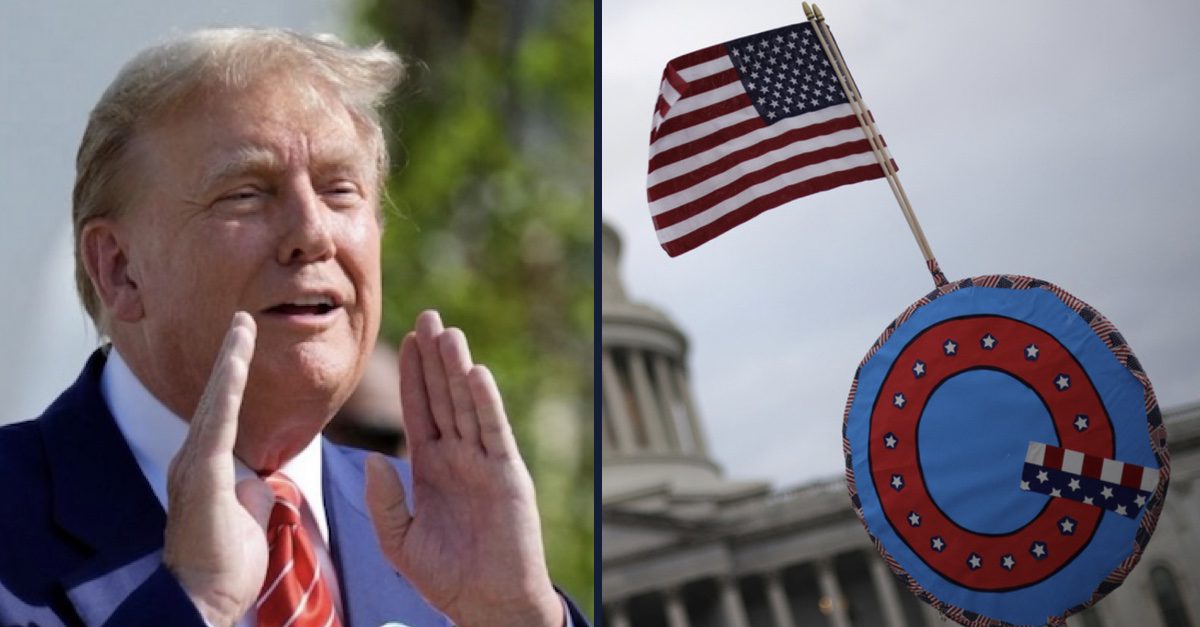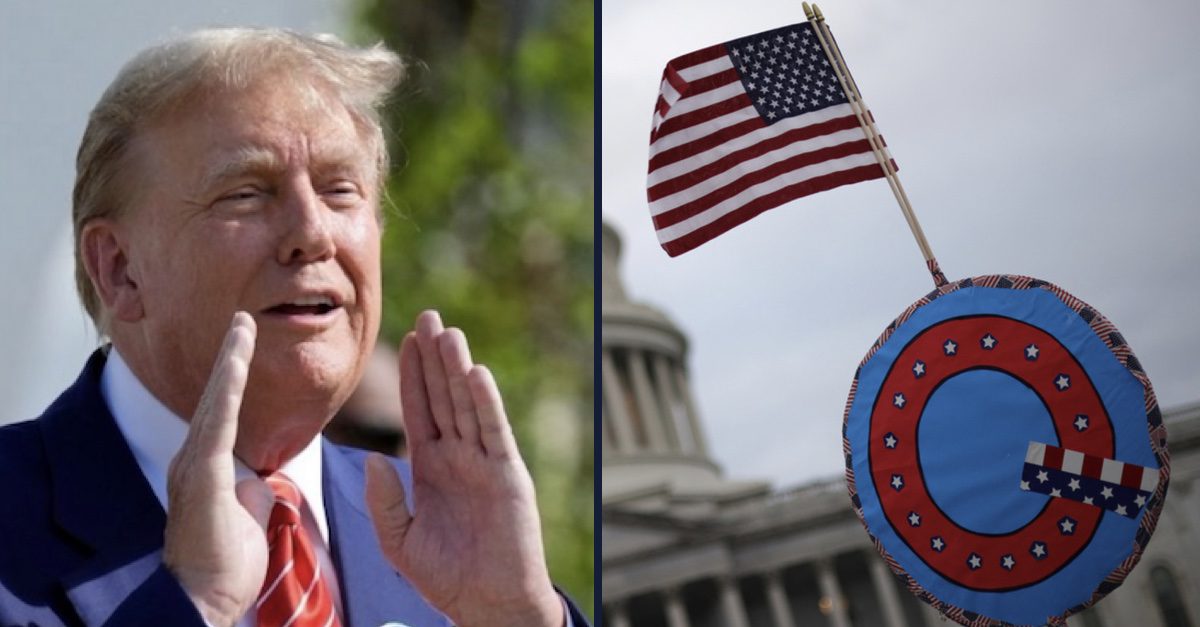

Donald Trump (shown on the left) in Palm Beach, Fla., on March 19, 2024. (AP Photo/Wilfredo Lee), (right) Supporters of U.S. President Donald Trump fly a U.S. flag with a symbol from the group QAnon as they gather outside the U.S. Capitol January 06, 2021 in Washington, DC. (Win McNamee/Getty Images)
The judge for the secret payment trial that Donald Trump has repeatedly requested to be removed from due to the political activities of the judge’s daughter took steps to prevent party affiliation from affecting upcoming jury selection. repeatedly requested based on the political activities of the jurist’s daughter took measures to keep party affiliation from marring upcoming jury selection.
Acting New York Supreme Court Justice Juan Merchan “previously informed” on Monday that there should be no direct questioning about a prospective juror’s party affiliation, whom they voted for in the past, or whom they will vote for in the future, because the questionnaire he’s approved will provide enough clues for Manhattan District Attorney Alvin Bragg (D) and Trump’s attorneys.
“The resulting questionnaire is broad and exhaustive. It consists of 42 numbered questions, many of which contain multiple sub-questions, covering all relevant areas of inquiry. Please note, there are no questions asking prospective jurors whom they voted for or intend to vote for, or whom they have made political contributions to,” Merchan wrote. “Nor are jurors asked about their specific political party registration, though the answer to that question may easily be gleaned from the responses to the other questions. Counsel is forewarned not to seek to expand the degree of intrusion beyond what is relevant and has already been approved.”
The judge said that, despite the arguments of Trump’s lawyers, jury selection does “not” exist to “determine whether a prospective juror likes or does not like one of the parties.” This line of inquiry is “irrelevant” because it doesn’t focus on a potential juror’s “qualifications,” Merchan said.
“The ultimate issue is whether the prospective juror can assure us that they will set aside any personal feelings or biases and render a decision that is based on the evidence and the law,” he explained.
Before listing the various queries in the questionnaire ahead of the April 15 trial date, Merchan “reminded” the DA’s office and Trump’s defense attorneys of the ground rules for challenging a prospective juror’s place on the jury “for cause.” Counsel can only do so based on an individual’s apparent inability to be impartial (their “state of mind”) or if their “qualifications” fall short of what is “required by the judiciary law.
The judge said the prosecution and defense even appeared to agree that party affiliation is not a legitimate basis to strike a juror from the case for cause.
The questions
The first seven questions focused on basic background details, such as where (generally) jurors live, what they do for a living and who employs them, their level of education, their family structure, and hobbies.
From this point on, the questions aimed to find out whether potential jurors are part of "advocacy groups," viewers of Fox News, CNN, Newsmax or MSNBC, readers of the New York Post, the New York Daily News, the New York Times, the Wall Street Journal or the Washington Post (among others), users of Facebook, Truth Social, TikTok, and X, and whether they are talk radio listeners or podcast viewers. For instance, the survey specifically inquires if potential jurors have read state witness Michael Cohen’s book "Disloyal: A Memoir" or listened to his Mea Culpa podcast.
Additionally, without directly asking about party affiliation, the questionnaire checks if the potential juror or people close to them have been associated with the Trump administration, campaign, or rally.
Although jurors will be questioned about their involvement with "anti-Trump group or organization," they may also be probed about their alignment with the pro-Trump conspiracy theory known as QAnon, the Proud Boys, the Oathkeepers, Three Percenters, “Boogaloo Boys,” or Antifa.
Jurors will also be asked if they have any thoughts about how Trump is being treated in this case and if any strong opinions or firmly held beliefs about the former president or the fact that he is a current candidate for president could impact their ability to be a fair and impartial juror.
Read the questionnaire here.

